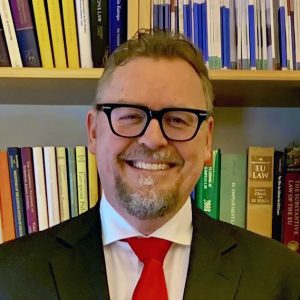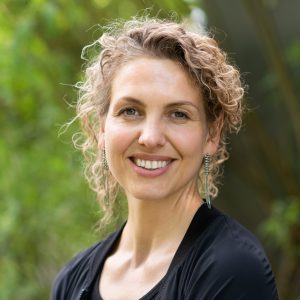EAHL2026
9-11 September, 2026
Uppsala, Sweden
Keynote speakers
Photo: TBA
Tamara Hervey
Tamara K Hervey (LLB (Hons) (Glasgow), PhD (Sheffield), Fellow of the Academy of Social Sciences, Principal Fellow of the Higher Education Academy, Honorary Fellow of the Faculty of Public Health) is Jean Monnet Professor of EU Law ad personam at the City Law School, City University, London. She holds visiting positions at the University of Amsterdam, University of Bologna, and University of Vienna. Her called-name is Tammy, and her pronouns are she/her.
Tammy’s research interests are in European Union health law, comparative health law, equality law, legal research methodologies and legal pedagogy. She is author of 21 books and over 200 other publications. She is Editor for entries on EU health law in the OUP Online Encyclopaedia of EU law. Tammy works with a large network of academics across Europe and in North America, representing several disciplines. She also regularly co-produces work with third sector entities and with students.
Keynote information
The early career European health law scholars program will consider how the upcoming generation of scholars (primarily PhD students) may be enabled to navigate the frontiers of their chosen discipline. The precise modalities of the program will be co-produced by early career scholars and Tamara Hervey, who has been involved in the discipline for several decades. It is likely to include presentations on the craft and art of academic writing; some ‘active learning’ or reflection; and an opportunity for students to present their work in progress and receive feedback on it, to help them navigate their own ways forward.
Photo: Apelöga
Elisabeth Rynning
LL.D., former Chief Parliamentary Ombudsman, Former Judge at the Supreme Administrative Court in Sweden, and former Professor of Medical Law.
Elisabeth Rynning holds an LL.D. in Public Law and was Professor of Medical Law at Uppsala University 2003-2012 (a chair jointly funded by the Faculty of Law and the Faculties of Medicine and Pharmacy). Her research has primarily focussed on issues related to the rights of patients and research subjects, especially privacy, autonomy and the use of new technology in health care and biomedical research. Between 2012 and 2016 she was a Justice of the Supreme Administrative Court, after which she held the position of Chief Parliamentary Ombudsman of Sweden, until the autumn of 2021. She was a Visiting Professor at the Law Faculty of Uppsala University 2022-2023 and, since 2022, chairs the board of the Swedish National Human Rights Institution, https://mrinstitutet.se/.
Keynote information
To be specified
Photo: Xavier Groussot
Timo Minssen
Professor, LL.D., LL.Lic., LL.M., M.I.C.L., Dipl. Jur., Founder & Director, Centre for Advanced Studies in Bioscience Innovation Law (CeBIL), University of Copenhagen, Denmark
Timo Minssen is Professor of Law, specializing in Health & Life Science Innovation, at the University of Copenhagen (UCPH). He is the Founding Director of UCPH’s Center for Advanced Studies in Bioscience Innovation Law (CeBIL). He is also an Inter-CeBIL/PFC affiliate at Harvard Law School and an LML Research Affiliate at the University of Cambridge. His research, supervision, teaching & part-time advisory practice concentrates on Intellectual Property, Competition & Regulatory Law with a special focus on new technologies, big data & artificial intelligence in the health & life sciences. Timo holds a German law degree from the University of Göttingen, as well as biotech & IP -related LL.M. M.I.C.L., LL.Lic. and LL.D. degrees from Lund & Uppsala University. Moreover, he had been trained in the German Court system, the European Patent Office, law firms & life science start-ups. Timo serves as a member of several international committees and as an advisor to the WHO, WIPO, the EU Commission, companies, national governments, and law firms.
Keynote information
Governing the Cutting Edge: Controlling Risks and Enabling Benefits of Emerging Health Technologies
Breakthroughs in health technologies—from AI-driven surgery, diagnostics and precision medicine to neural interfaces, gene editing and synthetic biology—promise transformative gains for health systems and populations. Yet these advances also bring complex risks, such as patient safety, data harms, algorithmic bias, unequal access, regulatory gaps, and shifting lines of accountability. As innovation accelerates, legal and policy frameworks must evolve not only to mitigate harm but also to foster responsible innovation.
This keynote will examine how legal scholars and policymakers can build governance models that are both protective and enabling—responsive to technological change, grounded in rights-based principles, and capable of shaping innovation toward public good. Drawing on recent regulatory developments and interdisciplinary insights, the talk will explore tools such as anticipatory regulation, risk-tiering, regulatory sandboxes, and adaptive oversight. In doing so, it will chart a path forward for law’s role in ensuring that emerging health technologies serve society—not the other way around.
Photo: Clara Wichmann
Anniek de Ruijter
Professor, University of Amsterdam
Anniek de Ruijter is Professor of Health Law and Policy at the Law Faculty of the University of Amsterdam and Director of Law for Health and Life. Her interdisciplinary research explores how legal frameworks can enhance and protect human health, while also critically examining the legal limits of public and medical authorities in addressing human vulnerability and the aspiration for a healthy life.
De Ruijter’s work focuses on the constitutional safeguards for health-specific rights and values, particularly within the context of European Union and global regulatory interactions. She has led various international and interdisciplinary research projects and leads the recently created ELSA Lab AI for Health Equity.
De Ruijter has studied and held visiting positions at Harvard Law School, Columbia University, and the Sorbonne. She serves on the editorial boards of the European Journal of Risk Regulation and The Lancet Regional Health – Europe, and is chair of the Academic Council of the Amsterdam Institute for Global Health and Development.
Keynote information
Renewal of solidarity: health systems and the EU in a changing world order
Europe’s health systems are under growing strain. Ageing populations, rising healthcare costs, persistent health inequalities, and critical shortages in medicines and personnel are testing the solidaristic foundations of care. Mechanisms like risk-pooling and resource redistribution – once central to post-war social cohesion – are becoming harder to sustain.
At the same time, the geopolitical landscape is shifting. With the development of a European Defence Union and increasing pressure on the EU to assert strategic autonomy, questions arise about the scope and responsibility of European solidarity, also in the realm of health. Should the EU act when a financial crisis shuts down hospitals in one of its Member States? When over 60% of hospital pharmacies report medicine shortages?
While EU law has often been criticized for undermining national health systems, today’s complex crises offer a moment to rethink its role. As seen during the COVID-19 pandemic, coordinated EU action – through joint procurement, capacity building, and knowledge sharing – can reinforce health solidarity rather than erode it. In a changing world order, solidarity in health may be as vital to the EU’s resilience as defence and energy security.
Important dates
1 November 2025: Call for papers and early bird registration
27 March 2026: Deadline for submissions
5 May 2026: Final decisions about acceptance
June 2026: Standard registration






